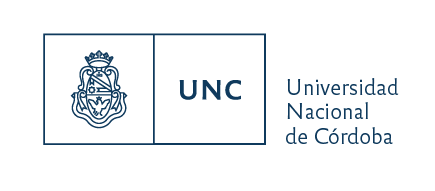| dc.contributor.author | Mallimaci, Ana Inés | |
| dc.contributor.author | Magliano, María José | |
| dc.date.accessioned | 2024-04-24T13:52:25Z | |
| dc.date.available | 2024-04-24T13:52:25Z | |
| dc.date.issued | 2015 | |
| dc.identifier.isbn | 978-1-4985-1416-3 | |
| dc.identifier.uri | http://hdl.handle.net/11086/551566 | |
| dc.description.abstract | From the study of the contemporary Bolivian migration to the cities of Córdoba and Ushuaia in Argentina, this chapter analyzes the implications of family migration on the itineraries of Bolivian women, focusing on their labor experiences in both destination places. It also explores how migration of Bolivian women is closely linked to finding job opportunities as a strategy of family reproduction. The relationship between Bolivian women and work goes through their lives, affecting their experiences and decisions, and becoming a key factor for their migration project. Besides, it considers the economic logics associated with family migration in order to understand the specificities of Bolivian migration to Argentina.We argue that the history of this social process can be expressed as a migration expertise accumulated and naturalized throughout generations of migrants which influences the migration dynamics and repertoires available for men and women, especially when migration is a part of a family project. The vast, widespread and historical migration experience is expressed in the direct knowledge migrants have on life stories of people nearby (neighbors and family members) who have traveled and still travel to Argentina: they have always been socialized with images of people leaving for Argentina, coming back to Bolivia and sometimes starting their trip back to Argentina again. This chapter sets its basis on the following questions: what is general in the condition of women, migrants and Bolivians that allows comparing similar processes in different local contexts? How do the migration history of the region and local characteristics affect their labor experiences? Can significant differences be perceived between Bolivian women arriving and working in Córdoba and Ushuaia? Some answers to these questions are outlined from reconstructing itineraries of Bolivian women and labor trajectories in both Córdoba and Ushuaia. | es |
| dc.format.medium | Impreso | |
| dc.language.iso | eng | es |
| dc.rights | Attribution-NonCommercial-ShareAlike 4.0 International | * |
| dc.rights.uri | http://creativecommons.org/licenses/by-nc-sa/4.0/ | * |
| dc.subject | Bolivian migration | es |
| dc.subject | Family migration | es |
| dc.subject | Labor experiences | es |
| dc.subject | Argentina | es |
| dc.title | Moving across Argentina: family, work and gender roles in the migration of bolivian women to Córdoba and Ushuaia | es |
| dc.type | bookPart | es |
| dc.description.fil | Fil: Mallimaci, Ana Inés. Universidad de Buenos Aires; Argentina. | es |
| dc.description.fil | Fil: Mallimaci, Ana Inés. Consejo Nacional de Investigaciones Científicas y Técnicas; Argentina. | es |
| dc.description.fil | Fil: Magliano, María José. Universidad Nacional de Córdoba. Facultad de Ciencias Sociales; Argentina. | es |
| dc.description.fil | Fil: Magliano, María José. Consejo Nacional de Investigaciones Científicas y Técnicas. Centro de Investigaciones y Estudios sobre Cultura y Sociedad; Argentina. | es |
| dc.description.field | Tópicos Sociales (estudios de género, estudios de familia, trabajo social, etc.) | |
| dc.book.city | Maryland | |
| dc.book.country | Estados Unidos | |
| dc.book.editorial | Lexington Books | |
| dc.book.firstpage | 67 | |
| dc.book.lastpage | 84 | |
| dc.book.pages | 150 | |
| dc.book.role | Autor | |
| dc.book.title | Experiences of Bolivian Labor Immigrants in Argentina | en |





